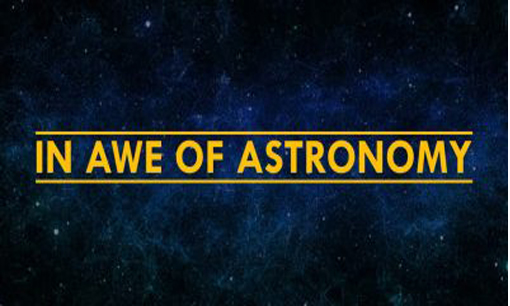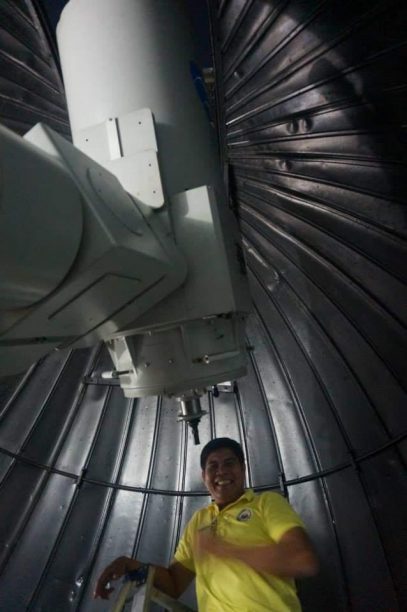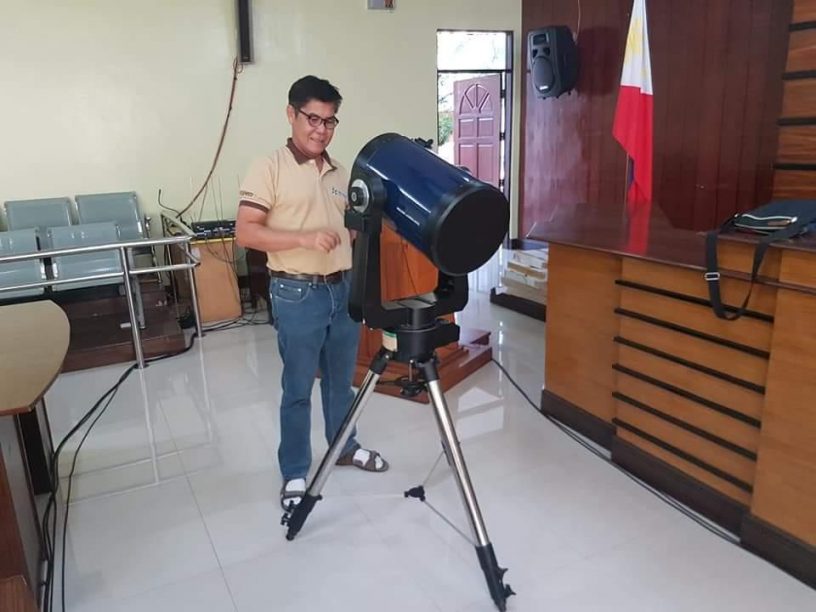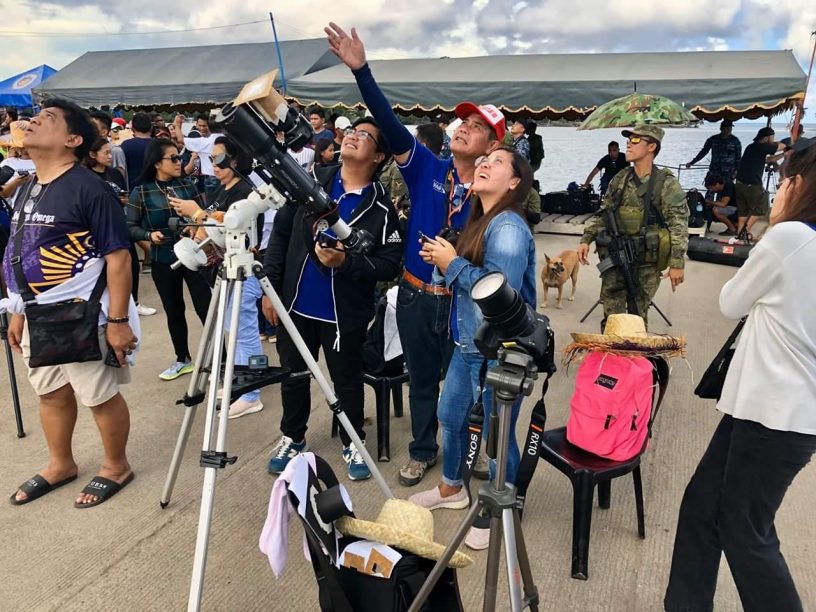Home > Blog > Astronomy
In Awe of Astronomy

Time flies when you’re having fun, and seems to slow down when you’re in a less desirable situation. But time is more than the numbers glowing on our phones and watches; it is a fascinating ode to astronomy.
 Raymundo with a 45-cm GOTO Telescope, the largest optimal telescope in the country, at the PAGASA Astronomical Observatory in the University of the Philippines.
Raymundo with a 45-cm GOTO Telescope, the largest optimal telescope in the country, at the PAGASA Astronomical Observatory in the University of the Philippines.
When Electrical Engineer Mario Raymundo first entered the Philippine Atmospheric, Geophysical and Astronomical Services Administration (PAGASA) office in 1993, he was assigned to the weather’s bureau’s time service unit. Here, he learned how time could be measured by observing the movement of celestial bodies, and how time zones in different parts of the world are based on the fact that it takes the Earth one hour to turn 15 degrees.
As time went by, it seemed almost natural for Raymundo to gradually expand his knowledge and duties to include astronomy. “As an engineer, I was well-versed in mathematics, including trigonometry. But in astronomy, I learned spherical trigonometry to make observations on the celestial bodies.”
Decades later, Raymundo is now chief of the PAGASA Astronomical Observation and Time Service Unit. “We use a 45-centimeter telescope to observe variable stars. During the daytime, we study and photograph sun spots.” Sun spots or dark spots that appear on the Sun’s photosphere may have an effect on the Earth’s weather patterns. Meanwhile, variable stars or stars that change their brightness are studied to possibly discover other stars and signs of life in the galaxy.
 Raymundo with a compound telescope
Raymundo with a compound telescope
Astronomy for Filipinos
Raymundo admits that the study of astronomy in the Philippines is limited because of the lack of funding for high-cost equipment. “Astronomy equipment is very expensive. A 1-meter telescope alone costs a million (US) dollars, which is roughly 50 million pesos. You can feed a lot of Filipinos with that amount.” Still, Raymundo believes that PAGASA provides a good foundation for future Filipino astronomers. “We have to start somewhere to impart the knowledge to future generations. Before the pandemic, we regularly visited schools with our mobile planetarium to conduct lectures.”
Despite the challenges, Raymundo says astronomy remains significant for Filipinos. “A lot of Filipinos are hungry for astronomical knowledge. In science textbooks in schools, only 7 to 8 pages are dedicated to astronomy, offering only general facts. When we conduct lectures, we give students direct knowledge. Through the planetarium, they better understand why celestial bodies are positioned in certain ways, and the importance of the Polaris or North Star. It’s easier to explain things that way.”
 Annular Solar Eclipse in December 2019 in Balut Island in Saranggani, Davao Occidental
Annular Solar Eclipse in December 2019 in Balut Island in Saranggani, Davao Occidental
 Training in Spain on Astronomical Observation which lasted for several months
Training in Spain on Astronomical Observation which lasted for several months
Astronomy saves lives
But astronomy is not only a passive observation of the skies; it can also save lives. In 2013, an asteroid about the size of a six-story building blasted over Chelyabinsk in Russia. Its explosion generated a shock wave that shattered glass and injured over a thousand people. “Outer space can bring disasters,” Raymundo says. “In reality, thousands of meteors enter our planet, but they usually disintegrate before hitting our surface. The one that exploded in Russia was unexpected, so we need people to be aware that this kind of disaster is possible.”
On July 15, Panahon TV will host a free webinar called Understanding Space with Raymundo as the speaker. “I’m excited because it’s my first time to conduct an online lecture. It’s a different approach and I’m looking forward to the results.” When asked what he’s excited to share with the webinar participants, Raymundo says, “I hope to better explain to them the things they read in books. Everything from the constellations to the zodiac, I will be able to describe in detail.”
Catch Chief of PAGASA Astronomical Observation and Time Service Unit Mario Raymundo in Panahon TV’s free webinar, Understanding Space, on July 15, 2020 at 2 pm. To register, click here: https://bit.ly/2Z7TJa4

